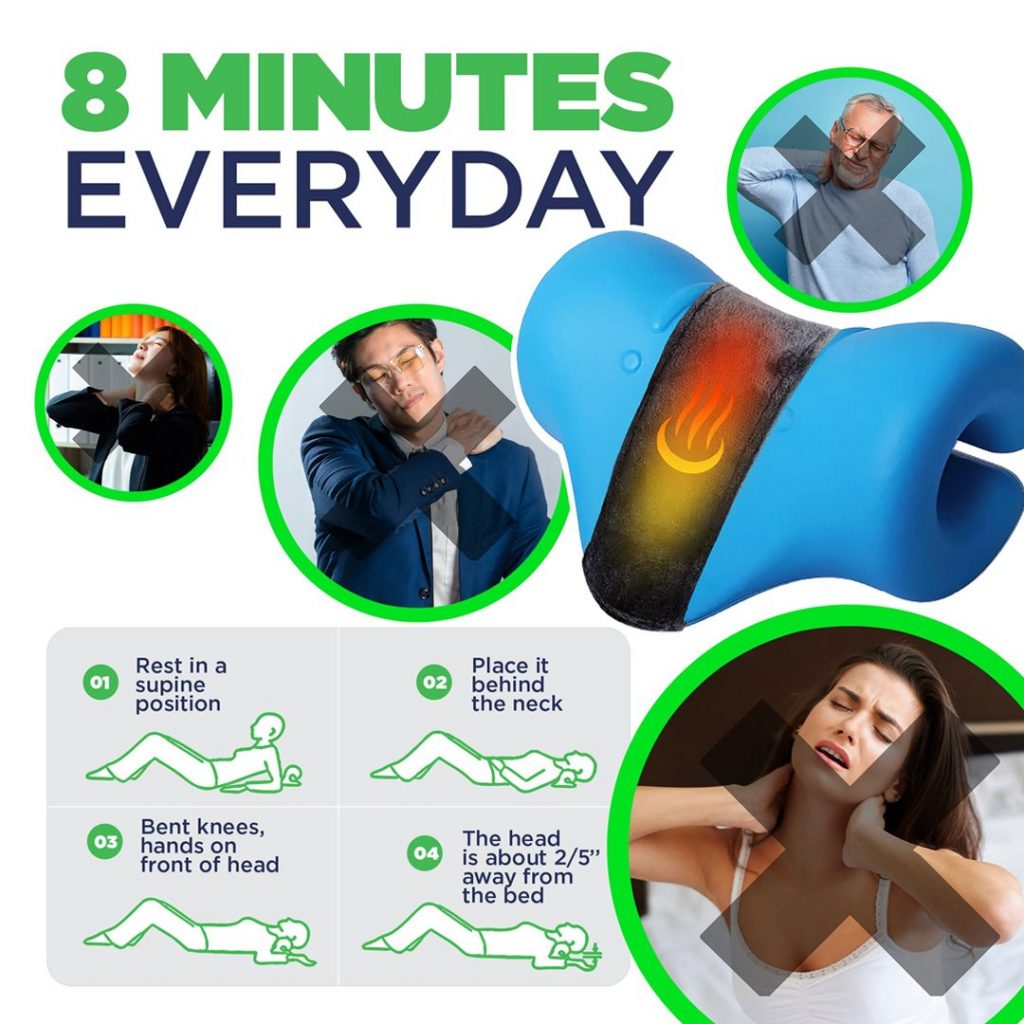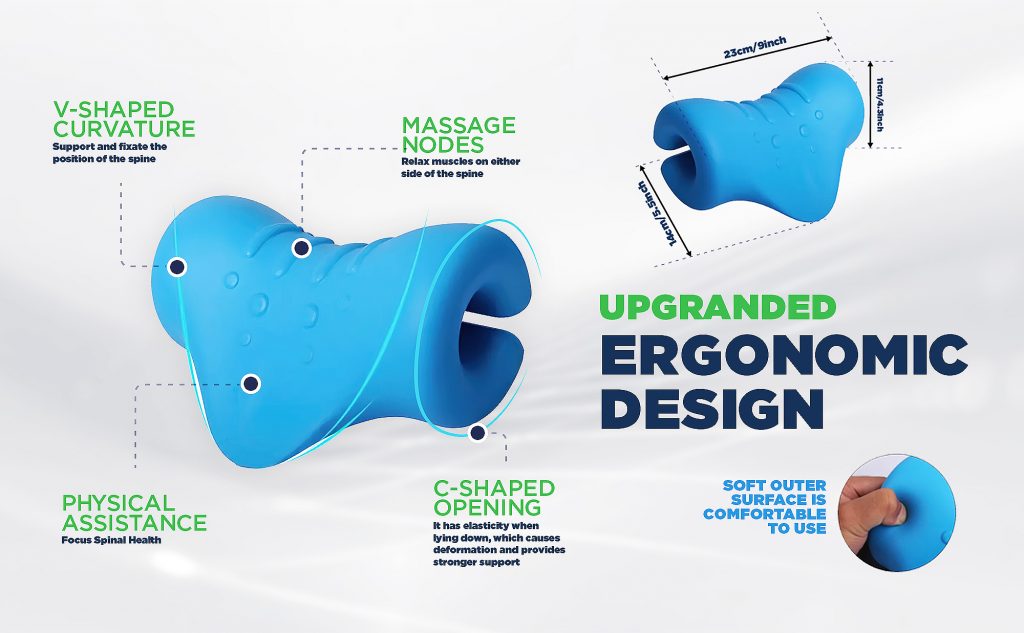Neck pain can have many causes, including:
- Poor posture: Sitting or standing with your head forward and shoulders slumped can strain the muscles in your neck.
- Injury: Whiplash from a car accident, a fall, or a sports injury can cause neck pain.
- Osteoarthritis: Wear and tear on the joints in the neck can cause arthritis and pain.
- Herniated disc: A disc in the neck can rupture or bulge and put pressure on a nerve, causing pain.
- Pinched nerve: A nerve in the neck can become compressed or pinched, causing pain.
- Muscle strain: Overuse or sudden twisting of the neck can strain the muscles in the neck, causing pain.
- Degenerative disc disease: As we age, the discs in our spine can degenerate and cause pain.
- Poor sleep habits: Sleeping in an uncomfortable position can cause neck pain.
- Stress: Tension in the neck muscles caused by stress can lead to pain.


A neck stretcher can relieve neck pain by stretching the muscles and ligaments in the neck, which can help improve the range of motion and reduce stiffness. Here are some potential benefits of using a neck stretcher:
- Reduces muscle tension: The gentle stretching of the neck muscles and ligaments can help reduce tension and improve blood flow to the area.
- Improves posture: Using a neck stretcher can help correct poor posture by aligning the spine and reducing stress on the neck and shoulders.
- Alleviates headaches: Tension headaches can be caused by tight muscles in the neck, and stretching these muscles with a neck stretcher can help relieve pain.
- Enhances relaxation: Using a neck stretcher can promote relaxation and reduce stress, which can benefit those who carry tension in their neck and shoulders.

Here are some tips to help prevent neck pain:
- Maintain good posture: Keep your head aligned over your shoulders and avoid slouching when sitting or standing. Make sure your computer screen is at eye level and your chair provides adequate back and neck support.
- Exercise regularly: Regular exercise, including stretching and strengthening exercises, can help maintain good neck health and prevent pain.
- Use proper lifting techniques: When lifting heavy objects, be sure to keep the weight close to your body and avoid twisting or bending your neck.
- Avoid prolonged static positions: Try to avoid sitting or standing in the same position for prolonged periods of time, and take breaks to stretch or move around.
- Get enough sleep: Sleeping on a firm mattress with a pillow that supports your neck can help prevent pain. Make sure you get enough quality sleep to allow your neck and body to properly rest and recover.
- Manage stress: Chronic stress can lead to muscle tension and pain, so it’s important to find ways to manage stress, such as through exercise, meditation, or talking to a therapist.
- Avoid activities that put strain on your neck: Avoid activities that put excessive strain on your neck, such as texting with your head down or carrying heavy bags on one shoulder.
It’s important to listen to your body and to address any neck pain as soon as it occurs, as ignoring it can lead to chronic pain and a longer recovery time. If you have persistent neck pain, it’s best to see a doctor for a proper diagnosis and treatment plan.

I have been experiencing neck pain for almost 9 years now and I have tried various methods to alleviate it including massage guns, pillows, and other aids. I have been using this particular pillow at least twice a day since I obtained it, and it has provided me with instant relief from the pain. The heat from the pillow has also helped to relieve muscle pain and improve the range of motion in my neck.
Although the highest heat setting can be a little too hot for my comfort, I still start with that setting and then lower it to the “middle” setting when I can no longer tolerate the heat. Overall, I highly recommend this pillow as it is simple to use and has been incredibly effective in reducing my neck pain.